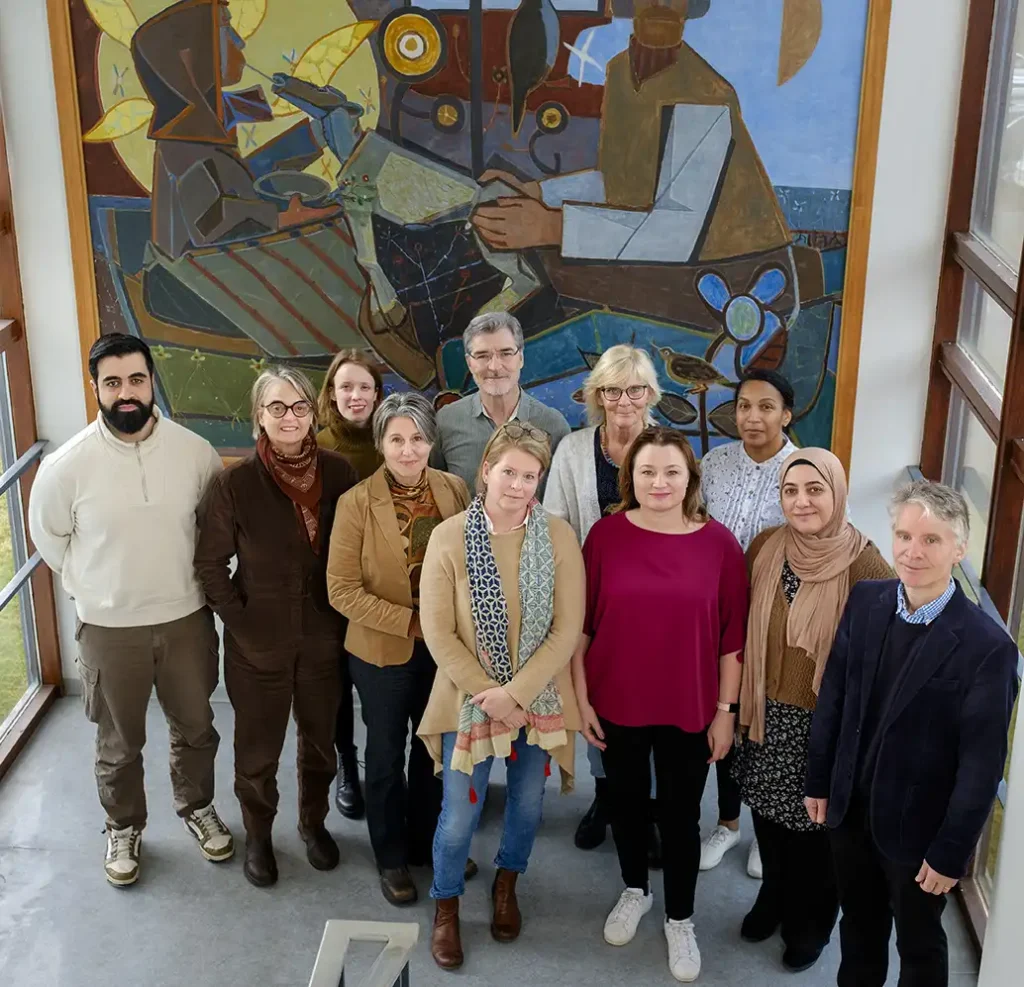New Frontiers: Inter-disciplinary Research on Refugee Children and Youth. An International Conference
Reykjavík, Iceland
31.10 – 1.11 2025
Important dates
February 1, 2025 Open for submissions
April 22, 2025 Abstract submission deadline (Extended)
June 1, 2025 Review results
June 1, 2025 Registration opens
August 20, 2025 Deadline for Early bird registration
August 20, 2025 Deadline for presenters’ registration
October 24, 2025 Registration deadline (Extended deadline)
Oct 31 – Nov, 1 2025 Conference (two full days)
About the Conference
The University of Iceland is pleased to announce the call for papers for a conference „New Frontiers“ on refugees and asylum seekers with a special focus on the experience of children and youth.
The organizers of this conference are a team of inter-disciplinary scholars who received a major, multi-year grant from the Icelandic Research Fund to research the inclusion of resettlement refugees from Syria and Iraq who arrived in Iceland between 2016–2021 with special attention on the children and youth. Among the topics that this project explores are second-language acquisition, education, well-being, social networks, trust, and access to resources and services.
At this conference we would like to explore the comparative dimensions of the refugee experience and evaluate how this question has manifested itself in different settings around the world. We encourage papers that address different aspects from the cultural, political, social, religious, and economic perspectives. We also welcome papers on other relevant themes pertinent to refugees and border crossers from different disciplines including education, history, anthropology, sociology, linguistics, politics, media, the visual arts and literature as well as inter-disciplinary studies.
The conference will be held in Reykjavik on October 31st and November 1st, 2025 and will include keynote talks and pre-organized panels on refugees and border crossers in Iceland.
Policy statement
The voices and experiences of refugee children and youth are the core of the conference „New Frontiers“. We bring together international research on refugee children and youth as well as personal accounts of refugees and immigrants in Iceland, where the conference takes place. By facilitating interdisciplinary scientific exchange on these matters, we aim to advance the global conversation on the inclusion, equity and social justice for internally and externally displaced children and young people – an imperative in light of ongoing and devastating human rights crises worldwide.
The Conference follows the general guidelines of the University of Iceland for academic conferences and the University’s principles of academic freedom and speech as well as the guidelines of the Palestinian Campaign for the Academic and Cultural Boycott of Israel (PACBI) in its policies on attendance from Israeli institutions.
Keynote speakers
Gry Paulgaard
Gry Paulgaard is Dr.Polit. in Pedagogics and Professor emeritus at the Department of Teacher Education & Pedagogics at UiT The Arctic University of Norway in Tromsø, Northern Norway, campus Tromsø.
Her scholarly interests include geography of education; implying the importance of contextualization of educational research, globalization and uneven development between center and periphery; particularly focusing on how young people growing up in northern areas live their lives, experience their opportunities for education and work, and the ‘choices’ they have.
In recent years, after 2015, much of her research has focused on migration, refugee education and integration of young people and families in rural places, particularly in the rural north of Norway. She is also the head of the research group ICred – Intercultural Relations in Education – at UiT the Arctic University of Norway.
Laura Robson
Laura Robson is Professor in the Department of History and the Jackson School of Global Affairs at Yale University. She is a scholar of international and Middle Eastern history, with a special interest in questions of refugeedom, forced migration, and statelessness.
Her most recent books are The League of Nations (with Joseph Maiolo; Cambridge, 2025), a reconsideration of the meaning and import of this first experiment in formal internationalism, and Human Capital: A History of Putting Refugees to Work (Verso, 2023), a wide-ranging investigation of the many twentieth century schemes to deploy refugees as labor migrants across the globe. She is also the author of The Politics of Mass Violence in the Middle East (Oxford, 2020); States of Separation: Transfer, Partition, and the Making of the Modern Middle East (University of California, 2017); and Colonialism and Christianity in Mandate Palestine (University of Texas, 2011), as well as the editor of Partitions: A Transnational History of 20th Century Territorial Separatism (with Arie Dubnov; Stanford, 2019) and Minorities and the Modern Arab World: New Perspectives (Syracuse, 2016).
With Jennifer Dueck, she is a co-founder and co-editor of StatelessHistories.org, a digital humanities project exploring the varied and multifaceted experiences of statelessness in the modern era.
The ESRCI Project
The New Frontiers conference builds on insights from the ongoing research project Education and Social Inclusion of Refugee Children and Youth in Iceland (ESRCI). Funded by the Icelandic Research Fund, the ESRCI project investigates the experiences of Syrian and Iraqi resettlement refugees in Iceland, focusing on children and youth and their inclusion in education, language acquisition, social life, and access to services

